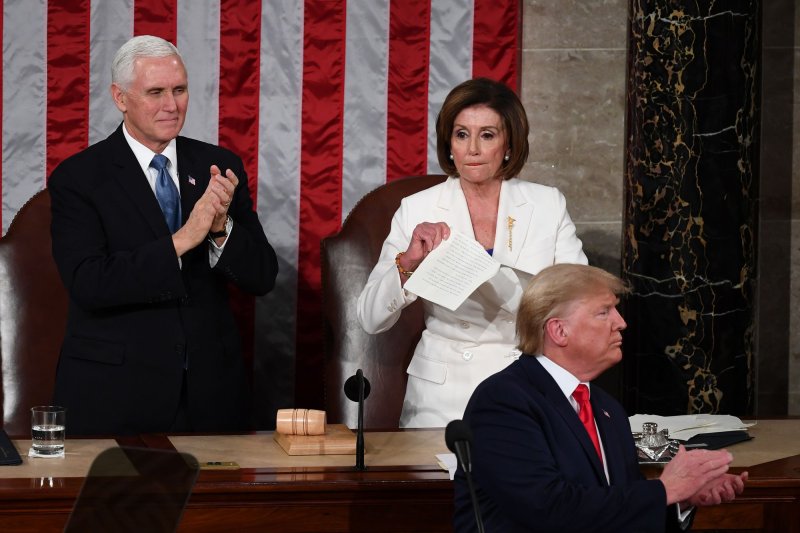House Speaker Nancy Pelosi tears up a copy of President Donald Trump's State of the Union address on Tuesday night. She later called it a "manifesto of mistruths." Photo by Kevin Dietsch/UPI |
License Photo
Feb. 6 (UPI) -- Heading into a presidential election year, most Americans say they would prefer Democrats in Congress steer the direction of the United States than President Donald Trump -- a break from tradition under two of the last three presidents.
Gallup said in a new survey Thursday 49 percent of respondents said they'd prefer congressional Democrats have more influence, compared to 43 percent who favor Trump having that control.
The survey noted a 44 percent approval rating for Trump.
The split differs a bit from past Gallup surveys that asked the same question.
Under former President Barack Obama before his re-election in 2012, 46 percent said they preferred he drive the U.S. direction, compared to 42 percent who favored Republicans in Congress.
When former President Bill Clinton ran for re-election in 1996, 54 percent said he should have more control, compared to 41 percent who favored congressional Republicans.
Gallup did not ask the question when former President George W. Bush ran for re-election in 2004. But the pollster posed the question in 2006, following lengthy wars in Iraq and Afghanistan, which showed 61 percent preferred control rest with Democrats in Congress. Just 31 percent favored Bush. Four years earlier, following the Sept. 11, 2001, attacks, 59 percent of Americans preferred Bush have more influence.
Thursday's poll also showed 54 percent of whites said they would like to see Trump have more influence, compared to 71 percent of nonwhites who favor congressional Democrats.
Gallup polled more than 1,000 adults for the survey, which has a margin of error of 4 points.















